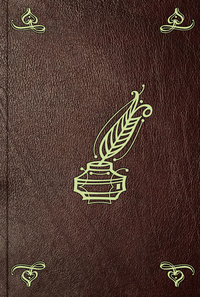
Полная версия
The Sheikh's Disobedient Bride
She clutched the tent flap, and stared at his retreating back, watching his white robe flow behind him.
Tally swore silently. Think, she told herself, do something. But what?
She caught the eye of one of the men cleaning guns and his expression was so disapproving that Tally shivered, and swiftly stepped into the tent.
But once inside, Tally didn’t know what she was supposed to do. The tent was crude. There were few furnishings—just a low futonlike bed, a blanket of sorts, a small chest and a couple of pillows on the bed—and nothing remotely decorative. No wardrobe for clothes (not that she had any!), no chair, no mirror, nothing.
It would have been so easy to panic, but Tally resisted falling apart. There was little point in giving way to hysterics. No one even knew she was gone. No one would know she was missing. As far as her family knew, she’d been missing for years.
Sighing, she rubbed her brow, feeling the grit of sand and dust at her temple, against her scalp. Riding across the desert had been an illuminating experience. She could have sworn she ate more sand and dust than what they’d traveled over thanks to the horses’ flying hooves.
Loosening her ponytail, Tally pulled the elastic from her hair and dragged her fingers through her hair, working the kinks free. What was going to happen now?
What was she supposed to do? Run? Steal a horse? Make vague threats about human rights and government relations?
Lifting the weight of her hair from her neck, she let her nape cool. She felt hot and sticky all over. Hot, sticky and afraid.
Why was she here? Were they going to ransom her? Punish her? What?
What did they want with her?
Reluctantly Tally pictured Tair, the bandit who’d taken her from town, and her stomach did a dramatic free fall all the way to her toes. Tair wasn’t like the others. He was bigger, harder, fiercer. The way he’d held her as they rode today had been possessive, the very way his arm curved around her, his hand against her stomach sent shockwaves of alarm through her. It was as if he’d laid claim to her, a statement of ownership.
But she wasn’t his. She’d never be his.
Her stomach did another nosedive and goose bumps covered her arms. Irritably she rubbed at her arms, trying to ignore the crazy adrenaline ricocheting through her.
He hadn’t let her die in the desert. When she’d had her asthma attack he’d forced air into her lungs and then found her inhaler. He obviously didn’t want her dead. But then what did he want from her? And would anyone back in Seattle care if she never returned?
Don’t be a pessimist, she rebuked herself severely. You’re a freelance photographer, and maybe you’ve never deliberately photographed war, but you knew that life in the desert wasn’t without violence.
For a moment Tally felt calmer, stronger, at least she did until her tent flap snapped open and a dark shadow filled the opening.
Tally’s stomach jumped, her heart plummeted. God help her. The bandit was back.
Dropping her hair, she smoothed her white cotton shirt over the waistband of her khaki slacks and watched as he entered her tent. He had to stoop to get through the covered opening. Once inside he glanced casually around, as if taking stock.
Tally swallowed hard, hands knotted at her sides. “Can you tell me why I’m here?” she asked, trying to sound conversational, not confrontational.
The tent flap swished behind him, allowing in bits of the twilight. He’d changed, and his outer robe hung open over a loose shirt and fitted pants. “You’ve interesting friends,” he said, after a long tense pause.
“I don’t understand. What friends are you talking about?”
“The friends you’ve been traveling with.”
Her forehead furrowed. “I’m on my own. I’ve traveled with no one.”
“You had men with you this morning.”
“Ah.” Her expression cleared. Comprehension, as well as relief swept over her. “Those men worked for me. They’re Barakan. One was my translator. The other a guide.”
He said nothing so she pushed on, praying she sounded confident, reasonable. “I hired them in Atiq and they knew I wanted to visit the kasbahs on the other side of the Atlas Mountains.”
“How much did they pay you?”
Tally felt a prickle behind her eyes, pain that reminded her of the migraines she used to get when she was in college. “They didn’t pay me. I paid them. As I said, I hired them. Their names were given to me by the hotel and they came highly recommended.”
“And did they do what you wanted?”
“Yes. Until this morning there’d been no problem.”
He regarded her for a long silent moment. “Why did you want to come to Ouaha?”
“Is that where I am?”
“Don’t act so surprised.”
“I am surprised. I hadn’t realized we’d left Baraka. There was no border crossing—”
“A desert separates the countries, Woman.”
She flinched at the “woman” but didn’t contradict him. Instead she took a breath, suppressing her aggravation. “There was no plan to come to Ouaha. I merely told my guides what I wanted and they set the course knowing I needed to be in Casablanca by the first of October.”
“Why the first of October?”
“My visa for Baraka ends and I need to be in Morocco by then.”
His thickly fringed eyes narrowed, his angular jaw thickening yet again. “And so what exactly are you doing here, so far from your home?” His voice had dropped, and it was low, low and deadly.
“Nothing. Just sightseeing.”
“With rebels as your guides?”
Her pulse quickened yet again. She pressed her palms together, the skin damp, sticky. “I don’t know their politics. We never discussed—”
“But you paid them.”
“Yes. I needed them. This part of the world is remote, and often inaccessible for women. I needed experienced guides.”
“You’re sure they didn’t pay you?”
Tally would have laughed if the situation weren’t so precarious. “For what?”
He slowly crouched down in front of the bed until he was eye to eye with her. His dark gaze met hers, held, the set of his mouth anything but gentle. “Why don’t you tell me.”
His eyes were so dark, and the expression so intense that Tally felt her heart stutter, not just with fear, but awareness. She knew men and was comfortable with men but Tair wasn’t like men she’d ever known. There was an untamed element to him, a primitive maleness that made her feel increasingly small, fragile, female. And she didn’t like feeling small or fragile, she just wasn’t. Life had toughened her. She didn’t frighten easily.
Swallowing, Tally gathered her courage. “I have no idea what you want from me. I’m just a tourist—”
“Not just a tourist. You’ve spent two weeks with those men. Two weeks photographing, documenting.” His voice dropped even lower, deeper, and the husky ominous pitch slid down Tally’s spine.
“We’ll try this one more time,” he said slowly, quietly, “and I warn you, I’m not a patient man but I’m trying. So don’t test me. Understand?”
She nodded, because she did understand, and she also understood that things weren’t going well and if they didn’t come to some kind of agreement relatively soon, she would be in even greater danger. “Yes.”
“Now tell me about the men you were traveling with.”
“I know very little about them. They were quiet. They kept to themselves quite a bit. I thought they were good men.”
“You’ve been with them two weeks and this is all you can tell me?”
How did he know she’d been traveling for two weeks with the men? He’d either been told, or he’d been watching her. Either way she’d been followed. “I’m sorry,” she said, picking her words with care. If ever there was a time for diplomacy, this was it. “We didn’t speak much. They’re men. I was a foreign woman. There were cultural differences.”
“Cultural differences.”
She flushed, locked her fingers together. “I wish I could tell you more. I hadn’t thought I was doing anything wrong. I’ve always wanted to visit Baraka—”
“But you’re not in Baraka anymore. This is Ouaha. An independent territory, and this is my country, and these are my people and you entered my country with Barakan rebels. Men who have brought violence and destruction to my people.”
She shook her head. “I don’t know what you’re talking about. I arrived in Atiq, hired these men as escorts, and yes, I have been traveling with them but that’s because I’m a tourist, and traveling alone. I needed local guides and they came highly recommended.”
“What about your pictures?” he asked, eyes narrowing.
She paled. “What about them?”
“You were taking pictures for them, weren’t you?”
“No. They were for me. I didn’t work for those men. Those men worked for me. The pictures are for me.”
“Why do you want photographs of a nation so far from your own?”
For a moment Tally didn’t know how to answer. His question had rendered her speechless. Why would she be interested in something so far from her home? Had he no desire to see the world, know something of places foreign to him? Finally she found her voice. “Because I’m curious.”
“Curious about what?”
“Everything. Food, culture, language, lifestyle. I’m fascinated by people, by the differences among us, as well as what we have in common, too.”
He snorted, a deep, rough sound of contempt. “We’ve nothing in common.”
She couldn’t hide her own flash of disdain, her jaw tightening, temper flaring. This is one of the reasons she traveled, as well as one of the reasons she’d left home. She’d abhorred ignorance and control. “Perhaps not. But instead of me staying home and sitting in my living room twiddling my thumbs, I’ve decided to go out and discover the truth for myself.”
“Women belong at home.”
“Maybe in your opinion—”
“Yes. In my culture women have a vital role taking care of the children, watching over the family, making sure her husband is fed and rested. Comfortable.”
“And when does she get to be fed and rested? When is she comfortable?”
“She is comfortable when her family is healthy and at peace.”
“Huh!” Tally scoffed scornfully. “Why do I get the feeling that never happens?”
He swore something in Arabic she couldn’t catch but from his tone she knew it wasn’t kind. She’d angered him. She felt his hostility rolling off him in waves. She also felt his ambivalence. He couldn’t decided what to do with her and Tally bit her lip, knowing she’d pushed him too hard, said too much. She’d never been a big talker but she’d certainly said quite a bit since arriving here.
“I’m sorry,” she said, struggling to be conciliatory. “I’m just a curious person by nature, and I’m here in Baraka—”
“Ouaha.”
“Ouaha,” she amended, not really knowing anything about the territory but anxious to move on, “because I’m curious about your part of the world. I don’t want to be ignorant.”
“So you’re just a tourist.”
He was testing her, she thought, probing for the truth and her insides knotted, twisting with apprehension. No, she wasn’t just a tourist. She was a professional photographer but right now she didn’t think that would go over real well. He already mistrusted her. Would his opinion change when she told him she was in his country taking pictures for a book on children? “Yes, a tourist,” she echoed.
“And that’s the truth?”
She regarded him steadily even as she scrambled to consider all the angles. It wasn’t a complete lie. She was a tourist, and she did love travel and discovering faraway places. Why did he have to know about her work? Why couldn’t she just be a traveler with a camera?
Tally held his gaze. “Yes,” she said, proud that her voice didn’t wobble in the slightest.
“We’ll see, won’t we?” he answered even as a voice sounded from outside the tent.
Her bandit shouted back and the tent flap suddenly lifted and a man entered carrying her camera. The man handed her camera to Tair and then left without once ever looking at her.
As the bandit handled her camera, pulling it from the leather case and turning it over, Tally’s legs went weak. She had a sudden desire to sit. But she didn’t dare move and instead she watched as he pushed buttons, turned the camera on and off, zoomed the telephoto lens out before bringing it back.
It made her nervous, watching him play with her camera. It was a good camera but not the most expensive on the market. However the pictures were important and the memory disk was full. She’d planned on putting in a new disk today, after she left the market.
“Tell me what you’re looking for,” she said now, careful to keep her voice calm, “and I’ll show you.”
He ignored her. Instead he opened the cover and then slid open the memory card slot. She watched as he tapped the small blue memory card, popping it out. Tally dug her nails into her hands. The card was tiny, looked like nothing, and yet it was everything to her. Her work, her life, her future.
“That’s more or less the film,” she said. “It’s a digital camera which means it uses a memory card instead of 35 millimeter film.”
He held the blue card up, twisting it one way and then the other.
Her heart was in her throat. It was as if he held her whole life in his hands. “I know it’s very small, but it holds hundreds of photos.”
“Are there hundreds of photos here?”
Reluctantly she nodded.
“Do you have other cards?” he asked.
Tally chewed on the inside of her cheek. She didn’t want to tell him that she had months of work on the memory cards, hundreds and hundreds of photos she hadn’t managed to download to her editors in New York or save to CD-ROM yet. Everything she’d done since April was on the memory cards in the camera bag and her hotel room. “Yes.”
“Where are they?”
Oh God. He wasn’t going to take them from her, was he? He wasn’t going to destroy her work? “Why?”
He shrugged. “They’re just pictures. You don’t need them. It’s not why you’re here. You’re a tourist. You’re here for the experience, not photographs.”
She exhaled so hard and sharp it hurt. Her eyes burned. She fought to remain calm. “But the photos are important. They help me remember where I’ve been and what I’ve seen.”
“You seem anxious,” he said, slipping the memory card back into the camera and clicking the card-slot door closed.
She was anxious. She was trembling. “Can I please have my camera back?”
“Maybe. When I’m finished. But you’ll get it back without the memory card.”
“The camera won’t work without it.”
“You can always buy new ones.”
“But I’ll lose everything I’ve done.”
“They sell postcards in town. Buy those on your way home.” He turned to leave but she rushed toward him.
“Please,” she cried, stopping herself from touching him, knowing instinctively that that would be bad. She was already in trouble. She couldn’t risk offending him more than she already had. “Please don’t erase my photos. I’ll show them to you. I’ll explain the camera to you—”
“I haven’t time,” he interrupted turning to walk away. “Dinner will be brought to you soon. I’ll see you tomorrow.”
“Tomorrow.” Tally’s heart raced, fueled by fear and fury. It was a maddening combination and her hands shook from the adrenaline of it. “You’re going to leave me here until tomorrow? And then what happens? Will you give me my camera back then, and the film?”
“Dinner will be brought soon,” he repeated tonelessly.
But Tally wouldn’t simply be dismissed. She didn’t understand what any of this was about. She’d paid her guides good money and yet when the shots rang out in the medina this morning, the men had just left her. They ran. Well, both ran. One was shot. She shivered in remembrance. “What is it that you want with me?”
“We’ll talk after I’ve gone through your pictures.”
“You won’t delete anything, will you?”
“It depends.”
“On what?”
“What I find.” His dark head nodded. “Good night.”
Tally threw herself on her low bed, buried her face in the pillow and howled with rage. He could not do this! He could not!
She couldn’t accept it. Wouldn’t. What he did was wrong, and unjust.
In his tent, Tair slouched low in his chair, closed his eyes, doing his best to shut out the American woman ranting in the tent not far from his.
She needed to accept her fate more gracefully. Surrender with dignity. He was almost tempted to tell her so, too, but she might perceive it as some hard won victory and he wouldn’t get her the satisfaction.
First she’d yield.
Then he’d show mercy.
Not the other way around.
Besides, his father had kidnapped his wife—Tair’s own mother—and his father was a good man. Decent. Fair. Well, fair enough.
Eventually the American woman would realize that Tair was just as decent, if not fair.
Tally ended up crying herself to sleep. She didn’t remember falling asleep, just weeping and punching her pillow. But now it was morning and opening her eyes, she stretched.
Her eyes still burned from the tears and it took a moment for her to focus. Tiredly her gaze settled on the small chest at the side of the bed. Oh God. She was still here. The tent. The encampment. Tair’s world.
It wasn’t just a bad dream. It was a bad reality.
Groaning Tally stretched an arm down, reached for the pillow that had fallen from her bed and bunched it under her cheek.
Okay. Last night she’d fallen apart. Today was strategy. Today she’d get her camera and film back. It was hers, after all, not his.
Already dressed in her thin cotton khaki slacks and white shirt, Tally left her tent in search of answers. Like who the hell was in charge of Ouaha.
Stalking out of her tent, she felt the intense desert sun pour over her, blinding her, scorching her almost immediately from head to toe. It was hot. A blistering heat, a heat unlike anything she’d ever known, either, and she’d been in some hot places before. The Brazilian jungle. The Outback in January. Marfa, Texas in July.
“Lady!” An elderly Berber man rushed toward her. He was thin, slight and stooped but he moved quickly. “Lady!” he repeated urgently, gesturing to the tent flap.
Tally felt the corner of her mouth lift in a faint, dry smile. She was supposed to go back inside the tent, sit and wait like a good little girl, wasn’t she?
The corner of her mouth lifted in an even drier smile. Too bad she wasn’t a good little girl anymore.
The old Berber turned and ran, and Tally suspected he’d gone in search of Tair. Good. She wanted to see him.
But as Tally passed one tent, she spotted on a chest outside another tent a leather case that looked suspiciously like her camera bag. Tally glanced around, no one was near by, everyone busy with tasks elsewhere and took several steps closer.
It was her camera bag and it was partially unzipped. She could see her camera tucked inside.
Tally sucked in a breath. The camera was so damn close. She had to get it back. At the very least, she had to get the memory card out before the bandit destroyed any photos.
Crouching down next to the chest, Tally pulled her camera from the bag, opened the card slot, popped the memory card out, closed the slot, dropped the camera back into the bag and stood up to return to her tent.
But suddenly the old Berber was in front of her, a long cotton gown draped over his arm.
Tally didn’t know what he was saying but once he unfurled the robe she knew he wanted her to cover up.
“No, thank you,” she said, shaking her head. “I’m fine. I’m just going back to my tent now anyway.”
But he insisted and the more he insisted the faster Tally tried to walk, but he wouldn’t stop talking and he was drawing attention to them.
Cheeks burning, Tally finally took the robe and tugged it over her head. “Thank you,” she said stiffly. “Now if I can just go back to my tent?”
But the old man was still talking and gesticulating and Tally clutched the small memory card tighter, her palm beginning to grow damp. She had to get the card hidden before Tair appeared.
Finally she managed to escape, slipping beneath the flap of her tent and diving onto her bed. She was shaking all over. Shaking with fear, shaking with relief. But she had the memory card back. That was the important thing.
But where to hide it? She still hadn’t decided when she heard voices outside her tent. She was out of time. Hastily Tally tucked the memory card under her shirt, inside her bra just as the tent flap flipped over and Tair’s long shadow stretched over the floor, his powerful frame silhouetted by the bright morning sun.
“You lied to me and you stole from me,” his deep voice rasped. “If you were a man I’d cut your tongue out and you’d lose a hand.”
Tally wrapped her arms around her knees, hugging them for protection.
“Where is the memory card?” he demanded.
Tally hugged her knees even tighter. “What are you talking about?”
“You know perfectly well.”
“I don’t.”
He said nothing now, just stared at her, his expression hard, unforgiving, brooding. His eyes were dark like coffee and a deep line seemed permanently etched between his black eyebrows.
He finally spoke. “I saw you. I was watching.”
Tally shuddered. She felt his anger and scorn, it was also there in his eyes and the mocking tilt of his lips but she wouldn’t let him know it bothered her. And she wouldn’t act afraid, or acknowledge that she was stuck here. Stranded and powerless.
“I want it,” he added softly. “Now.”
“It’s mine!” she answered fiercely, even as she bowed her head. She couldn’t give him the memory card, she couldn’t. It was hers, all she had of the past few weeks.
“Before you tell me no again,” he added even more quietly, “before you tell me another lie, know that in my world thieves lose hands. Liars lose tongues. Think for a moment. Decide if your photos are worth it.”
Tally couldn’t look at him now. All thoughts of being tough and strong were crumbling. “Please,” she whispered. “Please let me keep the card. You can have the camera.”
“That’s an odd thing for a tourist to say.”
Slowly Tally lifted her head, swallowing around the lump of fear.
“You told me you were just a tourist,” he added, his dark eyes boring into her, staring so hard, so intently she felt as if he were seeing inside her, all the way to her heart. “You lie. You steal. What else do you do?”
She shook her head, terrified.
“Perhaps you aid the insurgents. Those who want to be rid of us. Those that take our land from us.”
“I help no one—”
“Why should I believe you?”
“Because I’m not political. Yes, I’m a photographer, but I’m not political, I take no sides, I do not even know the history of these border wars you talk about.”
“Prove it.”
She looked at him for a long unblinking moment. “How?”
“Give me the memory card back. I will look at the photos. I shall see for myself if you tell the truth.”
She couldn’t look away from his dark eyes, or his hard features, each strong, defined—nose, jaw, cheekbone, brow bone. “What if you don’t like my work?”
He shrugged. “I’ll erase it.”
Tears filled her eyes and she hated herself for being weak and emotional but she was in agony. Those photos were months of work, work in nearly unbearable heat, work in wretched conditions, work where she’d sacrificed comfort and her own health to get just the right shots. “Please don’t erase my work. I’ve weeks and weeks of shots on that memory card. I haven’t downloaded anything in ages since I’ve been traveling.”
He was still, very still and his hard gaze reproving. “Why did you lie to me?”
She searched his face, searched for a sign of compassion or comprehension. “I didn’t think you’d understand.”
He stared down at her, expression shuttered, and when he spoke his voice was cold. “No. I don’t understand.” Then he walked out and for a moment Tally did nothing and then leaping from the bed, she chased after him.











